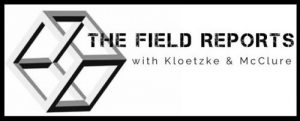We’re so happy “fake news” has come to the forefront. You can read why here, but seriously, let’s work together to help push “fringe science” into an acceptable field of study, before the masses push it into the abyss of fakery and hoaxes.
1. Aim for higher standards.
Let’s have open discussions about creating higher standards for investigations and research and how to promote that.
2. Allow repeatable testing by others.
Have others repeat your tests, if possible. Invite those with opposing theories to get involved.
3. Stop making assumptions about others who question you or believe something you don’t.
We need each other to thoroughly get to the bottom of all the mysteries around us – the more questioning, the more testing and investigating, the better. What drives us crazy is reading through comments on someone’s article and if it doesn’t line up perfectly with someone’s world view, then apparently the writer is a “government shill” or a “wack-job”. These accusations are usually unsubstantiated at best, and don’t help with finding the truth. Now, there is a whole can of worms to be opened, that has been researched about the government disseminating disinformation. What’s that? More freakin’ fake news! From the government! We are surrounded by it! So, instead of name calling, research, really research for yourself. Go down that rabbit hole. Don’t stop until you’ve got names and faces and facts and get the real truth out there.
4. Realize you may occasionally be wrong.
Or, conversely, realize you were wrong and admit it, like children have to do during their science fair projects. It’s still a great project even if the results were the opposite of what they hypothesized. It’s the process and the truth that matters, even if it’s not the result you wanted. Admitting you are wrong when you are wrong increases your integrity. You need that integrity to not be questioned when you do discover something groundbreaking!
5. Invent better tools!
Before the invention of the microscope, germs were still hanging around making people sick, reproducing like crazy rabbits, and causing all kinds of effects on human culture – well, by killing off millions of people though plagues and infected paper cuts, but they were here, even without us having the tools to detect those little bastards. Being far from the apex of human understanding, there probably exists all kinds of yet-to-be-discovered phenomena that we just don’t have the devices to prove it. We are smart! Let’s get on this and invent some new tools, people!! Then write about it.
6. Hold each other accountable.
Hold each other accountable – but don’t be a jerk about it. Do you really think if Tesla and Edison were alive today, they’d be commenting on each other’s Facebook pages, “‘Tis better that I enucleate myself, than submit to reading any more of your imbecile theories!” “You, good sir, should fustigate yourself at once for proposing that daft theory of alternating currents!” “May you go down in history as the penultimate inventor, whose discoveries only outshine those of the inventor of Olestra!” “You governmental sycophant! octothorp shill” Well, perhaps. Those guys really hated each other – but think of what our world would look like today if only they worked together! This kind of behavior is abhorrent and does nothing for the advancement of science. Yes, we know there are trolls and some morons can’t see the science past the boobs. Let’s just ignore these children and have real, scientific, thought-provoking, mind-expanding conversations with each other. Ask “why?” and “show me your facts” and “was this an eyewitness observation or your theory?” Let’s hold each other to a higher standard in a constructive and professional way.
7. Do the work.
Dig deep! Do your own research. Call professors. Write emails. Interview people who have first-hand knowledge. Make connections. Conduct tests. Find unbiased professionals to the testing or researching. Don’t believe everything you read and vet everything you can.
8. Fine tune your BS detector.
This leads us to the #1 reason we are loving the popularity “fake news” is currently enjoying. It’s embedding a sense of discernment in everyone. We all need to really think about everything we read and write and ask ourselves questions like…
- Why are we/they writing about this?
- Who are we/they trying to convince?
- Who profits from this?
- Where did we/they get their information from?
- What are some possible arguments against this that we/they do not raise?
- What is my/the writer’s world view and how does that affect the information?
- Is this merely clickbait?
Not that the answers to these questions will automatically discount an article, but we all need to keep thinking and trying harder before all of the “out there” and “paranormal” articles are automatically called “fake news” by the masses. So let’s up our game and do this! Go Team!! Because one of us might be the next Einstein, Marie Curie, or Anthony van Leeuwenhoek!


1 Pingback